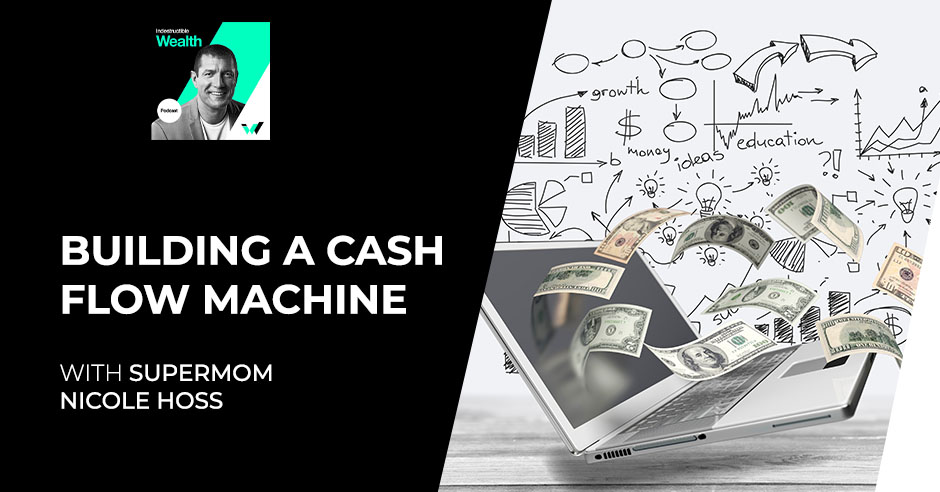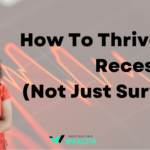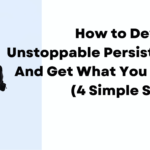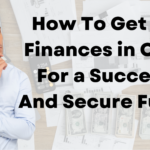
This week we talk with supermom and super pro-Nicole Hoss about how to create a Cash Flow Machine. What does that even mean? Listen to find out.
—
Listen to the podcast here
Building A Cash Flow Machine With SuperMom Nicole Hoss
In this episode, we are joined by one of my very first investor clients, Nicole Hoss, who turned into a key member of our team at High Return Real Estate. She is the Head of Investor Relations and helps investors find cashflowing turnkey properties, along with onboarding and guiding all investors through a program designed to maximize passive income called CASHFLOW+. Nicole is a super mom who has successfully built out her own portfolio with her husband, Neil, while raising their three kids from home.
Nicole’s fiery energy, incredible attitude, passion for real estate, and passive income as a client led me to know, with 100% certainty, that she would be perfect for this role at her company. She certainly hasn’t disappointed. All of our clients rave about Nicole. On this show, Nicole’s going to walk you through what CASHFLOW+ is, how to get insider access to quality turnkey properties in different markets, and how to set yourself up to be a sophisticated investor that looks at the whole picture and not a specific property decision. She has guided many investors through the CASHFLOW+ program with me with very strong results in optimizing passive cashflow. Please help me welcome to the show, Nicole Hoss. Welcome. Thanks much for joining the show.
Thank you. I appreciate being here.
We’re excited to dive in. I remember I interviewed you back on one of our very first episodes of The High Return Real Estate Show. That got the most downloads of any of our shows for quite a while. They were interested in learning about how this super mom creates this portfolio of properties and passive income. We’re going to talk about that, but we’re also going to dive into CASHFLOW+. Before we do that, why don’t you tell us a little bit about your background? How did you get involved in real estate investing?
My college degree is in Secondary Education. I was a high school teacher, moved around a few times with my husband, switched careers to something else, and had twins. At that point, we decided as a family that I would stay home. We moved a couple more times and had another kid. I do not recommend having three kids in two and a half years. It is what it is. I stayed home. We were living in Central Illinois. We were getting to the point where it was looking like all kids were going to be in school at the same time, which meant I was going to have a lot of extra time to start utilizing my brain again because that was all in mom’s brain for many years.
With my husband’s job, it was stable, but not always. You’re working for somebody else. He works for a large company. It seems stable until it’s not right. You never know if you’re going to be in the wrong position at the wrong time when the company decides to reorganize. Living where we were, seeing that he had a stable job, but it could go away at any time, we needed something that would create an additional income stream. We were living in Illinois. We started looking at turnkey operations because I’m not a contractor, but I wanted to learn stuff. We looked at turnkey and investing in Indianapolis. It was only two and a half hours from us. I started purchasing turnkey properties in Indianapolis.
What’s your portfolio look like? How many properties do you have?
I have 2 duplexes and 4 single-families. I also owned a quad. I have purchased and sold properties. I even owned, bought and sold a duplex in there too. It’s been a lot of different things over the last few years. I should be closing on another single.
What is that extra passive cashflow income? What’s that done for you and your family?
It’s done a lot. It’s knowing that we have this extra stream of income coming in to take that extra trip. In January 2023, there was an option for the school. We could take our kids online, plus my husband wasn’t working from home. I’ve always been online. We packed up and found a condo out in Colorado, a little 2-bed and 2-bath, Kids all did school online. We both worked online and spent our extra time skiing. We probably could not have done that had it not been for this extra stream of income. It’s something fun to do with kids and take advantage of the opportunities.
I saw your pictures and videos. I was super jealous. You were out there and I’m sitting here in Michigan with no mountains around me.
It was a once-in-a-lifetime thing that I hope the kids take with them.
Being an investor and already building a portfolio, what are your goals? Where are you trying to go from here? What’s the next level for you?
The next level is replacing my husband’s income. I’m completely replacing it with passive income. We live in Iowa and taxes here are high. You wouldn’t think that.
I would think Iowa is the lowest taxes in the country.
I don’t know what I’m paying to live here other than my husband’s job happens to be here. It would be nice to replace his income and move someplace on our terms.
You are financially free then. The definition of financial freedom is when you have enough passive income from your assets coming in to completely replace your normal ordinary income. When you do that, you’re free to do where you want, where you want to do it and with who you want to do it. It doesn’t mean you stop working because then you get bored. It means that you have complete, total options and freedom.
You’re the Head of Investor Relations at High Return Real Estate. You’re the investor concierge. I don’t know how many other titles you have. I should know. For a long time, your main focus has been onboarding customers and helping them find turnkey properties that we’ve offered. Now you still do that, but it’s shifted quite a bit in a great way. Tell us about that and how it’s shifted into where we’re at, promoting and talking about CASHFLOW+.
The turnkey market, not just in Indianapolis, but across the country, shifted. Things changed. First, we have investors not buying because they didn’t know if they were going to have a job, then we had an influx of properties. We sold those off, but then purchasing more properties became very difficult. High Return Real Estate was struggling picking up properties, mainly because they were overpriced and the rents did not catch up to where they were at that it didn’t make sense for us as a company to purchase them, to sell to an investor knowing that the cashflow wouldn’t be correct.
High Return Real Estate as a whole has always been customer-focused. If a deal doesn’t make sense, we’re not going to buy it just to buy it. We were like, “Now we’re not making money because we can’t get properties. We can’t sell through investors.” Once investors started to get more comfortable with the climate of their job and knowing that, “It’s been 6 or 8 months, I’m probably still going to have a job,” they started coming out of the woodwork again. They had money because they hadn’t gone anywhere for months.

Cash Flow Machine: Real estate has always been customer focused, and if a deal doesn’t make sense, we’re not going to buy it just to buy it.
They had extra funds to spend. They started showing back up. Prices were still high in Indianapolis. It still didn’t make sense to purchase properties. We had been working with this company called BPSG. Shecky had been working with it. He is the other owner, other than Jack, of High Return Real Estate. I’m used to talking to investors because they ask this question all the time.
We were looking for another stream of income for our investors. Shecky was working with this other company, BPSG, who had created this program and we are looking for additional vendors to offer the products to their customers and clients. Also, get to the point where High Return Real Estate would be able to be one of the companies to provide properties to the investors that are going through CASHFLOW+. It morphed into another income stream, especially because the properties and investment properties were not showing themselves as good investments.
It’s crazy to think back. Would you have ever thought that nobody’s buying? I thought the prices were going to plummet. The prices held firm and then they started going up and parabolic. We couldn’t find deals that made sense. What people were asking for turns was what we were selling properties turning key for, done, completed. We’re like, “These rents haven’t gone up enough to make sense from a return on investment standpoint.” It’s been completely, totally crazy and unpredictable. You got to pivot. Investors need to start pivoting too. We want to help everybody understand on this show that when the market conditions change, the way you used to do things could maybe no longer apply.
Don’t buy something just to buy something. It’s a mind shift. Don’t step into a situation going, “I’m here to buy properties.” If it doesn’t make sense, don’t do it. Find another way to invest that makes sense for your financial situation.
If it doesn't make sense, don't do it. Find another way to invest that makes sense for your financial situation. Share on XLet’s talk about this program called CASHFLOW+. What is it? What does it offer to the investor? What’s the benefit? Most people, when they come to us, they’re like, “I want to buy properties in Indianapolis. I want to buy turnkey properties,” and making this shift to, “There’s a much bigger holistic picture that I’m not considering that maybe I should be.” Your job is going to try to convert that thinking, which is not always easy.
I do like how smart the investors are that come through High Return Real Estate. I feel that those entering CASHFLOW+, because they’re not coming through High Return Real Estate, there are a number of other people similar to my job that are speaking with clients who then enter CASHFLOW+. I like to think that the investors that come through High Return Real Estate and then enter CASHFLOW+ are the smarter of the investors.
I’m sure they are because they come to us with usually a good setup already. Meaning they have cash. They understand that buying investments equals deductions in your taxes. They have a lot of basic understanding of investing and understand real estate a little bit. You don’t have to understand it a ton to buy a turnkey property, but you have some knowledge and you’re educating yourself to learn more. The investors who come in have systems and processes in place. Maybe they have an LLC already, and they get it. They want to learn more.
How does CASHFLOW+ work?
We’re looking at a three-pronged solution for the investors that come in through me. Our investors understand this. They are looking to minimize their taxes. That’s one prong. They are looking to utilize other people’s money in buying properties. Some of our investors come to us and say, “I have all this cash and I want to buy one property.” I’m like, “What if you take all that cash, use leveraging and buy three properties?” They’re like, “I didn’t think about it.” The third thing and this is the one that most of them don’t even think about is utilizing the lazy assets that they have.
What’s a lazy asset?
The lazy assets are your 401(k), Roth IRA, and primary residents. Those are the biggest lazy assets that people don’t realize they can tap into. They did not realize that they can tap into it, but when you think about your retirement account, you’re like, “I can’t touch that or the IRS is going to ding me.” There are ways around that that I have learned and that the people entering CASHFLOW+ have learned to get around me of those IRS issues.
Your 401k, your Roth, your IRA, and your primary residents are probably the biggest lazy assets that people have that they don't realize they can tap into. Share on XAre you speaking of like the 72(t)?
That’s one of them. There are a couple of other laws. They are constantly changing. We have a new administration. Anytime there’s a new administration, tax laws change. I don’t know what those tax laws are and what the changes are going to be. What’s nice is that by being connected with a tax strategist who can stay on top of that for me, understand and focus on investing and making sure that I am in compliance and I’m not going to have to pay too many taxes, you can start to see how all these intermingle, that you’re utilizing your lazy assets with the help of a tax strategist
I already have a CPA. What’s the difference between them? Aren’t they tax strategists?
Not quite. Think about when you work with your CPA. You probably work with them once or twice a year, in January and then again in April. It’s tax time. Your CPA, like I used to think my CPA, was doing a fine job. They are designed to put numbers into a program like TurboTax, which may be a little bit better than TurboTax, a CPA is, especially if you have an LLC that you’re incorporating.
Your CPA is reactive. They’re not somebody that’s going to reach out to you in July, “This tax law came available. What do you think? We probably need to make changes.” My CPA was always reactive. I would call them if I had a question about something and they would be able to answer me for the most part. I need a tax strategist or people going through CASHFLOW+, the tax strategists who then reach out if there’s a change in tax laws. They reach out for, “I see that you’ve already made this much money this year. Let’s do X, Y, Z to decrease your tax liability.” That’s a little bit different. The CPA does taxes for multiple occupations. The tax strategists that you get access to focus on investors and understand the tax laws that affect us.

Cash Flow Machine: The CPA also does taxes for multiple occupations. The tax strategists you get access to focus on investors and understand the tax laws that affect us.
A CPA is going to be more reactive. They’re going to take the information you provide them and input it into all the various forms and which is a complicated thing and requires a high level of skills. Definitely, not a knock on CPAs because they are intelligent, smart, work very hard and have a lot on their plate. They have a book of clients to get everybody all the way through, not only tax but then a lot of them do audits the rest of the year. They don’t have the time and the bandwidth to go out and scour or be up on maybe all the latest and greatest ways to help higher-income people reduce their taxes. They don’t have the bandwidth.
For anybody that thinks that this is the knock on CPAs, it’s not. A tax strategist is not a replacement for your CPA, either. The goal is for them to work in conjunction with each other. I remember Nicole. I have my account now. He is awesome, Brian, but the one before, we mutually parted ways because my tax strategy team gave me three great deductions that were all legal, ethical and documented in the code. I gave them to them and they pushed back. They wouldn’t put them in.
They’re like, “These are too cavalier.” My thought was like, “What is your job? What is your purpose? I thought your purpose was to help me pay the least amount of money and taxes that I’m ethically and legally responsible for paying?” For me, CPAs, that is not the case. They don’t look at it that way. There are probably some CPAs out there who do play the dual role of tax strategies and reactive. They’re proactive and reactive at the same time. For the most part, there’s a very small percentage.
We’ve lived in lots of places and I don’t ever run into one of those.
I’m sure they’re out there. You’re awesome. Could you give a couple of examples of me tax strategies that you’ve utilized or your clients that have gone through CASHFLOW+ have done something that maybe people wouldn’t normally think about that they could potentially utilize? I’m not asking you to talk about the 72(t) here because that one’s pretty complicated. It’s a little bit higher level tax strategy. We probably don’t want to get into the weed on that one.
I am not an expert. I rely on the experts to figure out my taxes for me. I did that in 2022. It was the first year I switched from the regular CPA I’d been using for 5 or 6 years. I kept him. He was back in Illinois. I’m in Iowa and I tried somebody out here anyway. I used the tax strategist this year and they were able to find deductions that I had no idea that, could be deducted. They were losses that I’ve had on my books for three years. My CPA never picked it up. now with this new organization, this new tech strategist, they were able to deduct the whole thing legally.

Cash Flow Machine: Rely on the experts to figure out your taxes for you.
It was crazy. There are standard deductions by having your own LLC because I have an LLC because I buy properties, but the Porsches of your property can be deducted. It was like they took all those standard deductions and put them on steroids. They were able to tell me, “What about this?” I’m like, “I didn’t even know I could deduct that.”
We are getting so much back on the taxes that we had to file an extension because it looks like we didn’t make any money. We’re trying to refinance our primary residents, then I have a refinance going on one of my properties in Indianapolis and we won’t qualify for loans the way our taxes are set up. Never before in my entire adult life have I ever been in this situation where I’ve gotten much back legally? We’ve had other people look at it because we were like, “There’s no way this is legal.” We’ve shown it to a few people.
I like to say, “I don’t know if it’s legal, but either tell me it’s legal, let’s go with it.” You trust it, but you verify.
My husband is very conservative and he was like, “This can’t be right.” I’m more of a, “Go with it.”
Also, forgiveness. You are asking permission.
I live by that. It’s bad. I’m like, “If the IRS knocks on the door, I’ll deal with it then.” He’s like, “No, we need to figure it out now before we file this.” We did. We had some people look at it and they were like, “It’s totally legit.” We were like, “Okay.” We did file an extension. We haven’t filed yet.
Let’s talk about lazy assets. Let’s say I have a $500,000 house. I’ve got the mortgage paid down to $200,000. I think I’m crushing life. I’ve got $300,000 in equity in my home. Is that a lazy asset?
It’s very much.
Why? What makes it a lazy asset? I’m reducing my debt. I’m doing what the gurus tell me to do.
One thing I’ve learned is that the gurus and everything we’ve been taught are wrong. It’s been hard for somebody who has paid off two houses because we move a lot to go, “This house that I’m sitting in, why not utilize the assets? I worked hard to get equity in this property. Let’s use it.” You can almost look at it like a giant bank. I’m not talking just a HELOC. There are many different strategies around it to utilize the equity in your house and debt is not the enemy as long as you’re not overextending yourself. We’ve never told anybody, “We’re going to take out equity in your house, but first, I want you to go buy a $1 million house.” We never want anybody to be in that situation. It’s looking at your current home and asking, “What equity or lazy asset is in there that we can tap into?”
When you say tap into it, you’re going to essentially borrow against it. You’re using your house as collateral to borrow money back out at a low-interest rate to then redeploy at a higher interest rate. Therefore, you’re creating the spread between the two is the excess cashflow you will enjoy off of that lazy asset.
That’s a great way to put it.
Can you give me an example of an investor or a situation where maybe not equity in the house, but they took a lazy asset and converted it into something that’s producing cashflow?
We do have some investors that tapped into some of their lazy assets. We have a number of investors and not all of them by any means. The investors that come to us are from all walks of life. I will speak to one that is closer to retirement age because they had a lot of lazy assets. I’m talking about Roths and IRAs. There are methods. A lot of you guys probably know this. There are ways to put those into funds or a portion of those Roths and IRAs into funds that you can then use to not buy a boat. IRS doesn’t like that. Use those funds to then buy investments. This individual was able to move portions of his Roth and IRA into a self-directed account. In there, he was able to purchase between 8 and 10. Now he is in the process of purchasing 4 or 5 properties.
When you say notes, do you mean a mortgage back note? They are called first trust deeds. That’s essentially where you become the bank on a property and whoever owns the title to the property is paying you the monthly interest on that note. He got eight of them. That’s a serious cashflow than that he’s got churning on those. What kind of interest rate is he getting on those notes?
He’s getting between 7% and 10%. It depends on the length of the note. Now a 20-year note is returning 7%.
How is that possible when interest rates are 3% for 30 or conventional? On the other end of it, why would they pay 7%, 8%, 9% or 10% on a note?
On the other end, the person who purchased the property and has the loan has all gone through the program and are also buying properties. That’s where the whole thing gets puzzled together.
They’re buying properties and instead of going to a traditional bank where you have to wait three months and give them the trust to your firstborn son, you have to go through the appraisal process. I went through it and it was 25 pieces of documentation I had to dig up. What was crazy to me was that they needed a copy of the invoice of our HOA or Homeowners Association bill for $350. They needed to see that in terms of being able to approve me for the loan. When you’re talking, I have a multimillion-dollar real estate portfolio, what the heck? That’s what people have to go through when they go through traditional lending on an investment property. This is a way for them to get it done.
You get to the point where you’re like, “I have the funds now. If they sit there for the next 3 or 4 months because it’s taking forever to get standard or traditional financing, what am I losing out on?” You’re losing out on its ton because it’s sitting there, getting no interest. If you could put it into a property in which your cashflowing is 10%, 12% or maybe higher, it depends on the property. It makes sense.
They’re not stuck into that now. They can always be down the line. They can go out and refinance it with a lower interest rate.
When things soften up a little bit, it doesn’t take long or start the process while you’re cashflowing. There are a lot of options available.
When things soften up a little bit, start the process while you're cash-flowing. There are a lot of options available. Share on XWhat are the investment products when people go through CASHFLOW+ that they’re able to purchase? They’re not coming through CASHFLOW+, not purchasing stocks, bonds, cryptocurrency, pre-IPOs, gold or silver. What are they able to get that’s going to help them in terms of their wealth-building plan? You’ve mentioned mortgage bank notes. That’s one thing. They can get properties going to get and access to properties through this program.
You do get access to properties. What I like about it is that in Indianapolis, the markets hard to purchase into. In CASHFLOW+, it gives you access to eight different locations.
What are some of those markets?
Some of those markets are Memphis, St. Louis, Fort Myers, Florida, and Birmingham, Ohio.
Some of these are markets that are on the radar that could potentially be offered. With inventory being tight, that gives an investor many more possibilities to buy something that makes sense.
They don’t have to sit and wait. I like that. It’s the whole, “This is part of my plan. I want to do this now. I don’t want to wait.” Who wants to wait when you have this cash burning a hole in your pocket per se and you want to start cashflowing now?
What would you say to somebody who would say, “I only want to buy properties right in my own area where I can drive to in 10 or 15 minutes?”
I would say, “Why? Are you managing the property?” “No.” “Are you going to live on the property?” “No.” That’s part of it. Secondly, “Does it make financial sense to buy where you currently live? Is it going to cashflow as well as something in one of those locations that we mentioned?” It may not make sense to buy properties in your backyard if it doesn’t cashflow. The majority of the people that come through CASHFLOW+ are looking to increase their monthly cashflow. They want the cash now. They’re not usually worrying about appreciation, “I live in California and in ten years, this should be worth a mint.” “Is it going to cashflow? How much is that going to hurt you?”You’re betting on our appreciation.
Instead of speculating for a potential gain down the future, which I’m not opposed to at all, but in the meantime, as Robert Kiyosaki’s stressed in his book Rich Dad Poor Dad and all of his books are like, “If you’re buying something and you’re banking on appreciation and it’s negative cashflowing or no cashflow, and then what happens if that appreciation never hits?” You waited all these years or however long and you were losing money. This is what sophisticated investors do. They buy things that cashflow now and can appreciate as well. How is the plan created for mem a new CASHFLOW+? Are you going to create a plan for me?
It’s not quite like that. We have some investors that are like, “Lay it all out for me.” It’s a give-and-take. We do work on creating a MAUP. It stand for Mutually Agreed Upon Plan. It is something that you are working with CASHFLOW+ to create your plan. We’re not throwing a bunch of modules at you. The program is not, “You’re going to need four hours a week or to work on this. Here are four hours of videos to watch.” It’s not that. You’re speaking with the tax strategist and me.

Cash Flow Machine: MAP stands for Mutually Agreed upon Plan.
You’re guiding them through this process.
I am your main point of contact for any of the investors that come through High Return Real Estate into CASHFLOW+. I help guide and we come to a decision that makes the most sense for you. It’s an education. I have investors that are like, “Tax strategist sounds great. I’m going to stick with my CPA.” “It’s a Mutually Agreed Upon Plan. You can do that.” It’s something that the program would say is probably not in your best interest, but we’re not going to force you to do anything you are uncomfortable with.
Aren’t these programs expensive? This sounds like it would be pretty expensive to get a tax strategist, all these different moving parts, all this advice and the guided nature of this. This is a pretty high-level service. What are we looking at here? This sounds like this is only for the very wealthy.
What’s nice is that it does give you access to a lot of those organizations that I mentioned, lenders, tax strategists, and turnkey companies, that are all within the same network. The introductory price will go up a little bit in the future, but now it’s only $750. That’s a one-time fee. That’s how much it costs to get into the program and start the process. There is a $45 per month fee that is charged. That’s you have access to the portal and all of the items that you’re going to be working through, all the different vendors, because it’ll be again per month that goes on indefinitely. What’s nice is that when you get to the point of purchasing your first property, it will take $750 off the purchase price. That fee to join the program is wiped out.
That seems like a pretty generous offer. What if I’m an investor and I’m like, “Everything you said sounds great, but I still just want to buy properties. Can I buy some properties?”
You can absolutely do that. We have a person I would send you to that can work on the properties that may make sense for you, but I can’t guarantee that it will make sense for you. It all goes back on you. You get to decide, “I want that property. I want this one. It looks good to me. Maybe I’ll have some issues, but I’m used to it. There are certainly ways to purchase properties without going through the whole program.
There are certainly ways to purchase properties without going through the whole program. Share on XIt sounds like they’re going to be best served if they do CASHFLOW+. Is it like insider access almost to the best ones?
Without saying it, I would say. The properties that are going to be “better properties” certainly go to those with the education behind them, which means going through the program. We’ll sell them. They’re going to be not probably as good of a product as if you were to go through the program.
We covered a lot of ground here. I appreciate everything that you’ve shared. Is there any question I should have asked that I didn’t ask you or any topic that we should have covered that would make sense to educate people about this whole thing? What’s changed for you? What does it look like for you?
Our financial situation. My husband is especially good with our finances and we meet weekly to discuss our finances and figure out what we want to do next. We had this ten-year goal of replacing my husband’s income and doing whatever we wanted by going through the program has been cut in half. Our goal as we continue through this program is to replace his income in five years, which is crazy to me because our kids won’t even be through high school yet.
You’re saying you have that on at least a ten-year plan and then now, going through CASHFLOW+, you have a set to where you believe that’s cut down for five years?
We do. We didn’t know what we didn’t know. We both have full-time jobs. It’s not in finance or researching how to make our money work for us. We were going off of the education that we had. We both have higher degrees. I feel like we’re smart, but it’s not the right smart. I mean the professionals to go, “Good start.”
There are millions of smart people out there that don’t know what they don’t know. There are a lot of alternative strategies that we know. Intrinsically everybody knows that a small percentage of the wealthy out there know something that we don’t know. They’re playing the game almost by a different set of rules, but we don’t know what those rules are. Now, with CASHFLOW+, you’re learning the rules.
I got all my people in place to help me and that’s huge. The tax strategist, lender and financial strategist having those individuals able to know each other is crazy. I would never have been able to do that on my own. That’s pretty nice to have that cohesiveness.
If they are interested in this program. They want to speak to you further. They want to learn and have more questions about CASHFLOW+, or they’re like, “I’m in. I want to get started.” What’s their step? What do they need to do?
You could get to us in lots of different ways. You email me directly at [email protected].
The website is HighReturnRealEstate.com/Cashflow.
If you go to HighReturnRealEstate.com, you can get to it eventually, but if you want to do it faster, it’s HighReturnRealEstate.com/Cashflow.
Thank you much for joining us and for all your expertise. I’m sure that there will be readers that will take you up on this now and in the future whenever they’re ready to maximize their real estate portfolio, tax strategies, mortgage back notes and all of these great things working together. This is exciting. I love that. We have this product to be able to offer to people. It’s truly a game-changer. Everybody, thank you for reading. We’ll see you on the next show. Stay tuned.
Important Links
- High Return Real Estate
- CASHFLOW+
- The High Return Real Estate Show
- Rich Dad Poor Dad
- [email protected]
- HighReturnRealEstate.com





